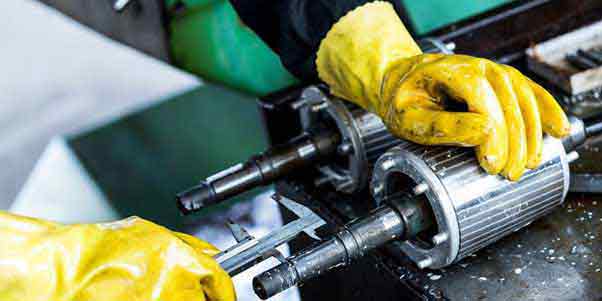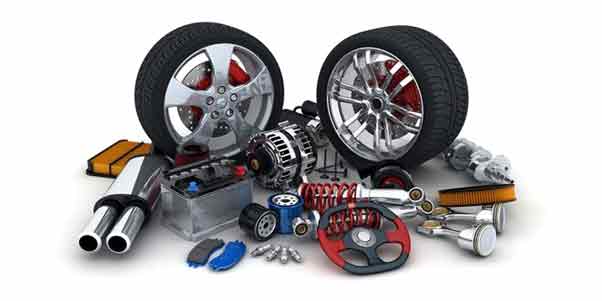
When your vehicle is involved in a collision or accident, it is very likely that some parts will need to be replaced. When it comes to repairing or replacing your vehicle's parts, you have two options: take it to your dealer's service center or an independent auto shop. Whichever path you take, keep in mind that there is a significant difference between the two, particularly in the parts used. Whether you take your car to an auto body shop, collision service, or your dealership's service department, you'll most likely be presented with a variety of parts to choose from.
Depending on the type of part you require, it is critical to understand that the most expensive part is not always the best part. Depending on the type of part you require, it is critical to understand that the most expensive part is not always the best part. If you do need to replace parts, chances are the shop will have a recommendation from one of the following types: genuine parts, Aftermarket parts and refurbished parts.
In most cases, your dealer's shop will use OEM parts, whereas an independent shop will use aftermarket parts. Some will also use refurbished parts. Many car owners are perplexed as to the distinction between the categories.
What are Genuine Parts?
Genuine parts are the authentic equipment manufactured by the vehicle's factory supplier. This means you'll get excellent quality and a perfect fit for your vehicle. While this is a good option for newer vehicles or those being serviced by a dealership, it can be prohibitively expensive for older vehicles. Ordering Genuine parts for these vehicles can take weeks, especially for luxury vehicles made in Japan or Europe.
What is the significance of genuine parts?

Original auto parts are designed to fit the specifications of your vehicle and protect its value. OEM parts are guaranteed to fit properly and have passed crash safety tests when used in collision repairs. Independent auto shops may not use original parts, lowering the value of your vehicle. Original parts also protect your vehicle's warranty and give you peace of mind that every component of your vehicle is up to par.
What are Aftermarket Parts?
Third-party manufacturers create aftermarket parts. They will not void your vehicle's warranty if they are direct replacement parts. Many insurance companies seek out aftermarket parts because they are frequently less expensive than genuine parts and, in some cases, perform even better than the original. However, keep in mind that aftermarket parts are frequently of poor quality. They may be made of a thinner material that is more susceptible to damage after a collision and has a shorter lifespan than other parts. Before you buy aftermarket parts, make sure they're from a reputable manufacturer.
What is the significance of aftermarket parts?
Aftermarket parts are significantly less expensive than OEM parts; however, you'll need to shop around for a reputable brand to ensure that you're getting the best value for your money. Most independent auto shops use aftermarket parts, and while they may provide a limited parts warranty, they do not typically cover the cost of labor repairs.
What are Refurbished Parts?
Refurbished is the sale of products, typically electronics and electricals, that have previously been returned to a manufacturer or vendor for a variety of reasons. Before being sold, refurbished products are typically tested for functionality and defects. It is repaired and resold by the manufacturer. Big-ticket items like engines, turbochargers, gearboxes, and steering wheels are common refurbished parts. It's critical to look into the warranty that comes with these components.
For Example
- Genuine screens will have foam pads over the flex cables, whereas aftermarket screens will either have no pads or have pads that are poorly placed. Genuine screens typically have a rectangular white film under the ambient light sensor, whereas aftermarket screens do not. Quality assurance is guaranteed because these are direct from the original manufacturer and have been subjected to stringent quality control.
- Furthermore, refurbished parts ensure a greater respect for the environment, which is critical in a historical and social context in which it is increasingly important that all productive sectors direct their business models toward a more pronounced eco-sustainability. Because these are upcycled materials, refurbished parts can help reduce one's carbon footprint. Refurbished parts are unquestionably more reliable in terms of performance than a merely repaired unit.
Which stores sell each type of part?
Which parts you have will usually be determined by the type of shop you send your automobile to. Here's what you might find in each type of store:
1. Repair shops for automobiles- These stores frequently sell both genuine and aftermarket parts. What you're offered, though, may be contingent on the type of claim you submit. Make sure to inquire about your alternatives with your repair business.
2. Garages and mechanics who work on their own- These shops usually stock both types of parts and may even be able to save you money by selling you used genuine parts.
3. Repair businesses in dealerships- genuine parts are often used only by dealerships.
Obtaining the most suitable replacement parts
If you need a replacement part for your car, it's up to you to make sure you get a good one.
1. Make use of your common sense- Ask yourself why a component that sells for $500 at the dealer and $400 as an OEM-branded part sells for $100 online. The $100 is deceptively low.
2. Only buy from reputable merchants who have a good track record- Outside of the United States, sellers may not be subject to the same level of consumer protection.
3. Request an itemized invoice with part numbers from your repair business- Most garages are willing to do this, and it allows you to verify the origins of each part.
Conclusion
Each sort of auto part has benefits and drawbacks, and the best decision is determined by your needs and tastes. However, if you're prepared to pay a little more for peace of mind, nothing beats an OEM part manufactured to your car's specifications.